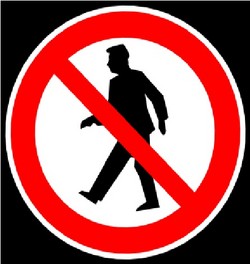
Find Out More
Parents & Educators
To have a child go missing is a parent’s worst nightmare. The threat of abduction by a stranger is minimal when compared with other possible reasons for disappearance.
When it comes to the relatively low risk of abduction and kidnapping, children are by and large taken away by people they know. This implies they need a sense of who to trust. Wandering off is more common – but a lost child may have to call upon a stranger for help, and must develop the ability to judge what kind of people to approach.
The “never talk to strangers” rule does not protect children in the situations they are most likely to face. On top of this, it can be confusing. Adults do not model the behaviour; they often talk to strangers. A child may not know how to define a stranger, and who is not. If strangers are dangerous, then they must look unpleasant. On the other hand, a friendly, attractive person must be okay. Even though the opposite may be true, that is how a child’s mind may work.
What Parents Can Do
For young children, nothing replaces close supervision. Pre-schoolers do not understand risk and tend to act on impulse. Children need to develop habits and attitudes that will protect them from the real threats and dangers they may face.
What to do if they are lost or in danger – They should stay out (or in hazardous conditions, find the nearest safe spot), try to attract attention, and wait for a rescuer.
Where they live – Once children are in school, have them memorize their name, address and phone number in case they become separated from the family.
When someone makes them feel uncomfortable – Whether it’s someone they know or not, children should be taught to trust their instincts and to seek out an adult in whom they can confide.
Whom to ask for help if they get lost – For example, a uniformed officer, store or restaurant staff, information booth or mother with children.
How to respond to situations – Practice “what if” scenarios, such as getting lost in a mall, being approached in a park, or being offered a ride with a stranger. Many families use secret passwords; children ask anyone picking them up for the password.


